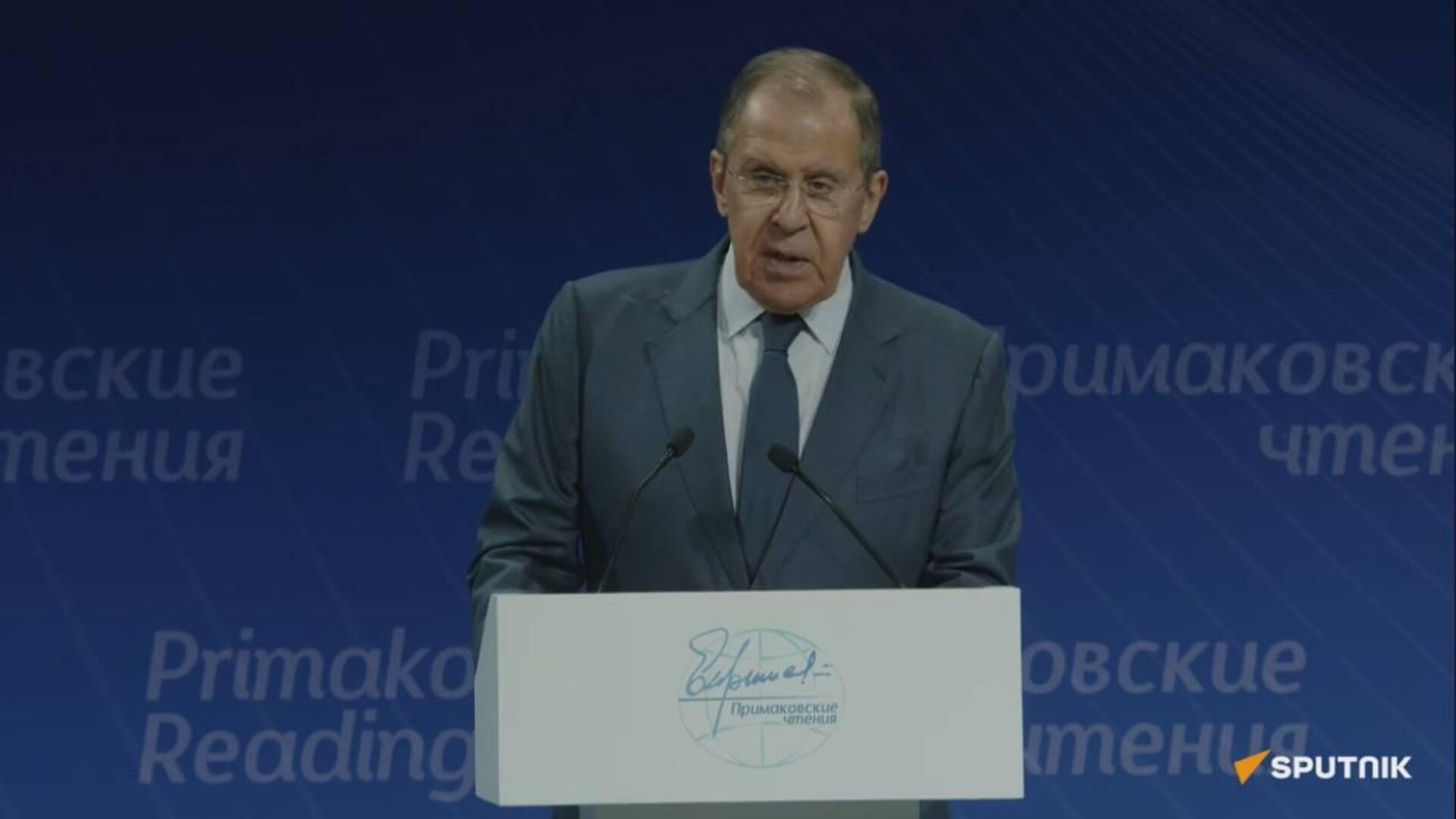BRICS to Increase Advantage Over G7 After New Members Arrive in January, Lavrov Says
11:18 27.11.2023 (Updated: 16:15 27.11.2023)

© Sputnik
Subscribe
The remarks by the Russian Foreign Minister Sergey Lavrov came during the Primakov Readings International Forum, which is currently holding in the country's capital, Moscow from November 27-28.
BRICS will enhance its advantage over the G7 group with the arrival of new members on January 1, Russian Foreign Minister Sergey Lavrov said.
He noted that "the fact that the world is becoming different is also evident in multilateral diplomacy."
"The most striking example is BRICS. The organization's countries promote equality, mutual respect, and the formation of a balance of interests through consensus. There is no place for blackmail, so it is not surprising that so many countries want to join," the top diplomat added.
BRICS, currently comprising Brazil, Russia, India, China, and South Africa, extended invitations during the August summit to Argentina, Egypt, Ethiopia, Iran, the United Arab Emirates, and Saudi Arabia to become full members of the bloc starting January 1, 2024.
Lavrov went on to say that "non-equilibrium, unfair" global order that favored "the golden billion is becoming a thing of the past."
According to the minister, the changes in geopolitics are noticed by the West; however, these changes are sometimes perceived as a threat.
"Western countries are also beginning to realize the changes in geopolitics. In particular, Macron talks about this, but as a threat," he underlined.
The G20 group and the Shanghai Cooperation Organization (SCO) are fostering multipolarity, the top diplomat highlighted.
"Both the G20 and the SCO are working in favor of the establishment of multipolarity. The latter is designed to cement this trend on the Eurasian continent," Lavrov emphasized.
Moreover, the minister emphasized that Russia "consistently stands for the democratization of world contacts, a fair distribution of benefits."
Continuing on the topic of multipolarity, the top diplomat underscored it encourages countries of different regions to show solidarity, as an example, he cited united actions and solidarity of the Arab-Muslim world amid the Israeli-Palestinian aggravation.
"The current outbreak of the Palestinian-Israeli conflict has become a catalyst for such solidarity, a catalyst for cohesive actions of the Arab-Muslim world," he said.
Lavrov recalled that last week a delegation of the League of Arab States and the Organization of Islamic Cooperation at the level of foreign ministers visited the capitals of the five permanent members of the United Nations Security Council (UNSC), including Moscow.
"At our meeting we confirmed the need for an early fair settlement based on the concept of two states, this was the main signal that this joint delegation of the League of Arab States and the Organization of Islamic Cooperation sent to the capitals of the "five" and to other capitals of UN member states," the head of Russian diplomacy pointed out.
He also noted that in the Middle East, Africa, Transcaucasia, Central Asia, and Eurasia as a whole, there is a growing consensus in favor of the formula "regional problems - regional solutions".
"External players are expected to provide all possible assistance to the countries of the respective regions, and not impose recipes from the outside. If someone wants to be useful, then it is necessary to support the approaches that are being developed in the region, where the respective countries see much better ways to overcome certain contradictions than from overseas," Lavrov stated.
Lavrov said that only developing countries from Asia, Africa and Latin America that have authority in their regions can become new members of the United Nations Security Council.
"It is important to eliminate the historical injustice that manifested itself after the completion of the decolonization process, the emergence of many dozens of young sovereign states. It is necessary to reflect these realities in the numerical composition of the UN Security Council. It is clear that the new members of the Security Council can only be from the developing regions of Asia, Africa and Latin America, and should enjoy authority in their parts of the world and in such organizations of global scope as the Non-Aligned Movement and the Group of 77," he explained.
The minister added that although the UN "fulfilled its main role," prevented a world war, "there was no general prosperity."
The IX Primakov Readings International Scientific and Expert Forum is held in Moscow on November 27-28 under the theme "Post-globalization horizons."



